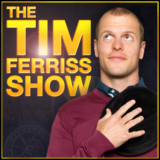.lightweight-accordion { border: 1px solid #ccc; border-radius: 4px; padding: 5px; margin: 5px 0; } .time { font-size: 0.875rem; /* Option 3: Using rem ...
.lightweight-accordion { border: 1px solid #ccc; border-radius: 4px; padding: 5px; margin: 5px 0; } .time { font-size: 0.875rem; /* Option 3: Using rem ...
.lightweight-accordion { border: 1px solid #ccc; border-radius: 4px; padding: 5px; margin: 5px 0; } .time { font-size: 0.875rem; /* Option 3: Using rem ...
.lightweight-accordion { border: 1px solid #ccc; border-radius: 4px; padding: 5px; margin: 5px 0; } .time { font-size: 0.875rem; /* Option 3: Using rem ...
.lightweight-accordion { border: 1px solid #ccc; border-radius: 4px; padding: 5px; margin: 5px 0; } .time { font-size: 0.875rem; /* Option 3: Using rem ...
.lightweight-accordion { border: 1px solid #ccc; border-radius: 4px; padding: 5px; margin: 5px 0; } .time { font-size: 0.875rem; /* Option 3: Using rem ...
This episode is a two-for-one, and that’s because the podcast recently hit its 10-year anniversary and passed one billion downloads. To celebrate, I’ve curated ...
This episode is a two-for-one, and that’s because the podcast recently hit its 10-year anniversary and passed one billion downloads. To celebrate, I’ve curated ...
This episode is a two-for-one, and that’s because the podcast recently hit its 10-year anniversary and passed one billion downloads. To celebrate, I’ve curated ...
This episode is a two-for-one, and that’s because the podcast recently hit its 10-year anniversary and passed one billion downloads. To celebrate, I’ve curated ...
This episode is a two-for-one, and that’s because the podcast recently hit its 10-year anniversary and passed one billion downloads. To celebrate, I’ve curated ...
Matt Pottinger is a distinguished visiting fellow at the Hoover Institution and chairman of the China Program at the Foundation for Defense of Democracies. ...
Craig Foster is an Oscar- and BAFTA-winning filmmaker, naturalist, author, and ocean explorer. He is the co-founder of the Sea Change Project, an NGO dedicated ...
This episode is brought to you by 5-Bullet Friday, my very own email newsletter. Welcome to another episode of The Tim Ferriss Show, where it is ...
This week is officially the podcast’s 10-year anniversary, and there is no better way to commemorate such a wild milestone than with Kevin Rose and a little ...
Dr. Martha Beck has been called “the best-known life coach in America” by NPR and USA Today. She holds three Harvard degrees in social science and has ...
Dr. David Spiegel is Willson Professor and Associate Chair of Psychiatry & Behavioral Sciences, Director of the Center on Stress and Health, and Medical ...
Reed Hastings became executive chairman of Netflix in 2023, after 25 years as CEO. He co-founded Netflix in 1997. Reed is also a majority owner of Powder ...
Scott Glenn’s acting career spans nearly 60 years. His impressive film resume includes performances in Apocalypse Now, Urban Cowboy, The Right Stuff, ...
Seth Godin is the author of 21 international bestsellers that have changed the way people think about work. Seth’s books include Tribes, Purple Cow, Linchpin, ...
- « Previous Page
- 1
- …
- 4
- 5
- 6
- 7
- 8
- …
- 24
- Next Page »

